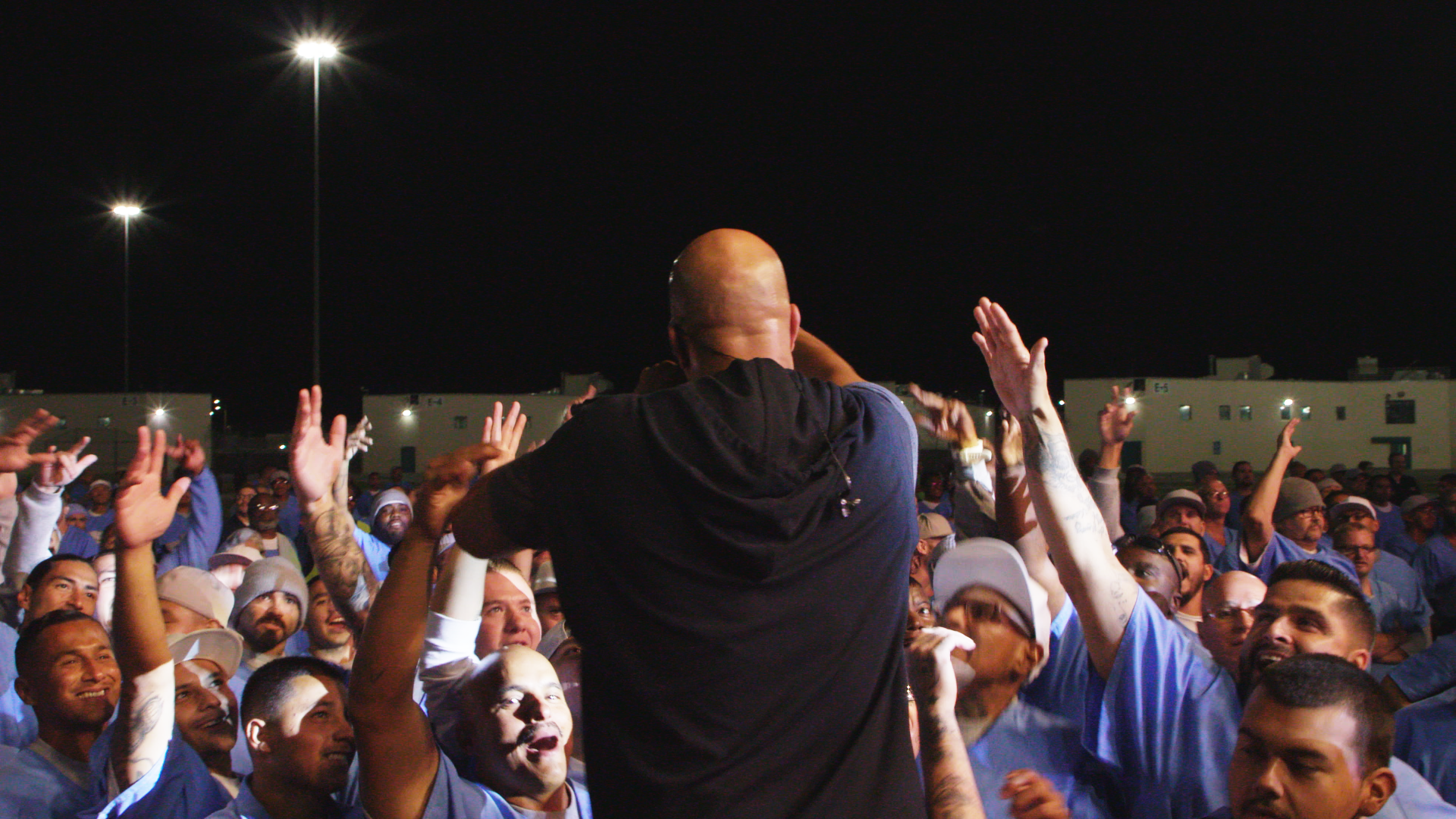The Hope and Redemption Tour with Common
Mic Dispatch | Aired Nov. 24, 2018
By AARON MORRISON, Correspondent | Cinematography by Stephen Valdivia & Rich Dinardo
CHOWCHILLA, California — Grammy Award-winning rapper and activist Common has never served time in prison. But he has had an epiphany about the lives of hundreds of thousands of men and women incarcerated in the nation’s prison systems.
Their stories aren’t being told accurately to people on the outside, he said.
“Before I got to come into prisons, I would have never known — these are some people who are teaching me things about life that I didn’t know I needed to know,” Common said from Valley State Prison during an interview for Saturday’s episode of Mic Dispatch.
In October, Common put on three live performances at facilities located in remote parts of California’s Central Valley. He met with groups of currently incarcerated men and women, some of them acknowledging crimes as serious as murder. Others said they were convicted of offenses related to their experiences with poverty, childhood neglect and addiction. Common said there’s deep desire among incarcerated men and women to change public perceptions about prison, from a place where criminals become even more hardened to a place where reconciliation, rehabilitation and inner peace are realities.
That shift in perception seems more possible now, as the prison reform movement picks up momentum in the White House, in Congress and in statehouses. Bipartisan federal reform legislation, that includes a proposed expansion of rehabilitative programs in prisons, has the support of President Donald Trump, who leads a country incarcerating 2.3 million people, more than any other nation. Decades of mass incarceration policy and uneven access to therapy, education and job training inside of prisons made it likelier that a resident would eventually return to the facility, if he or she ever got out, according to reform advocates who accompanied Common at the prisons in October. Flexible sentencing guidelines and increased clemency won’t reduce recidivism, if rehabilitative services and re-entry support aren’t also prioritized, the advocates said.
For his part, Common said he wants to encourage incarcerated people on their transformations, while also supporting the work of activists who do in-reach programs at prisons.
“I want to address you as kings,” Common said, speaking to more than a thousand men gathered at a stage that some of them helped construct that morning at Valley State Prison. Nearly all of the residents wore loose-fitting, baby blue-colored shirts and navy blue pants bearing the words “CDCR PRISONER” on their backs and legs.
As a six-piece band played an overture into Common’s 2016 song “Black America Again,” he said: “For all my people that came from the ghetto, I want to say, we’re going to write a new story. This is a new story, a new narrative we’re going to tell together. And I believe that each and every one of you is going to write that new story for yourself.”
Common launched the Hope and Redemption Tour in 2017. It’s a concert and community engagement campaign organized by his new nonprofit organization, Imagine Justice. The tour is made possible, in large part, because of a partnership with Scott Budnick, the executive producer of the Hangover film franchise, who serves on an advisory board that promotes rehabilitative programming inside of the juvenile and adult facilities run by the California Department of Corrections and Rehabilitation.
CDCR incarcerates more than 128,000 men and women. According to the most recent and available data, 66% of people released from a California prison return within three years. Prison facilities in California are overcrowded, in some instances, sleeping eight residents to a cell. In 2011, the Supreme Court ruled the state must shed 30,000 residents from its facilities, finding that overcrowded and unsafe prison conditions violated the Eighth Amendment ban on cruel and unusual punishment for crime. Since the court’s ruling, state legislators adopted policies that expanded parole eligibility, including for older incarcerated men and women who were sentenced as teenagers to life in prison without the possibility of release.
To read the full written story, click here.







